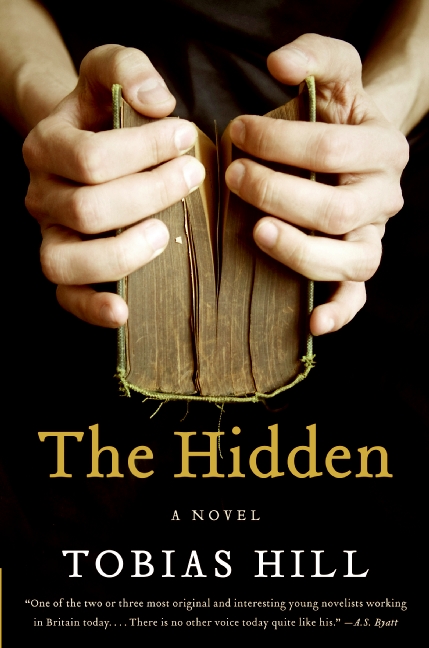The beginning: A man called Ben, separated from his wife, has come to Greece for three months to get away from his life in Oxford. For a while he works at a meat grill in Athens, but a chance meeting with a colleague gets him a job on an excavation at Sparta, an excavation populated with a group of strange, unfriendly, exclusive people.


The end (no spoilers): I had it in my head that this book was like a cross between a Carol Goodman novel and The Secret History. The eternity Ben spends in Athens as a waiter or whatever threw me for a loop, but the ending makes it clear that the book’s really about some next-level shenanigans going on at the Spartan excavation. Good. That is what I signed on for anyway.
The whole: In The Hidden (affiliate links: Amazon, B&N, Book Depository) I spy the bones of a properly good book. The similarities to The Secret History were limited–fortunate for me as a reader because I love that book so so so much and it is hard for other books to measure up–and Tobias Hill is good at evoking the stony fatality of Sparta. I am addicted to classical antiquity, in case you didn’t know. Sparta was one of the greatest cities of olden times, but it left almost nothing behind when it fell. Hill quotes Thucydides:
Suppose the city of Sparta to be deserted, and nothing left but the temples and the ground-plan, distant ages would be very unwilling to believe that the power of the Lacedaemonians was at all equal to their fame.
Prescient, no? If it weren’t for the rest of Greece, we wouldn’t know hardly anything about Sparta, for the exact reason Thucydides mentions.
Once the plot gets going, it’s a pretty good one. My mind was on completely the wrong track as to what nefarious doings the unfriendly excavation team was up to in their spare time, and it was fun to be set straight. But Ben is only permitted access to the secret two-thirds of the way through the book, and until that point it’s hard to know why I’m supposed to be interested. If it were me, I’d be friends with the nice Greek man who invited me to dinner with his family and not with the snotty exclusive kids who seem to get a kick out of being unfriendly.
Another failure of the book that the allure of the excavator clique is minimal. Richard, the protagonist of The Secret History, has come to his Vermont college to shake off his old life and put on a new one, and the classics majors (rich, elegant, brilliant) are emblematic of that new life. Ben, by contrast, is only planning to stay in Greece for a few months, so I couldn’t see what need in his life the cliquey jerks were filling. They weren’t that interesting (except insofar as it’s boring and depressing to be the odd man out), and they were pretentious in a way that was not aspirational to Ben.
Woe! I was hoping for good things from this book. I guess I will have to reread The Secret History then, or get a book about Sparta from the library.
Cover report: British cover wins resoundingly. This is not a book about reading old books, it is a book about digging. I also like the spartan, stylized thing the British cover has going on.